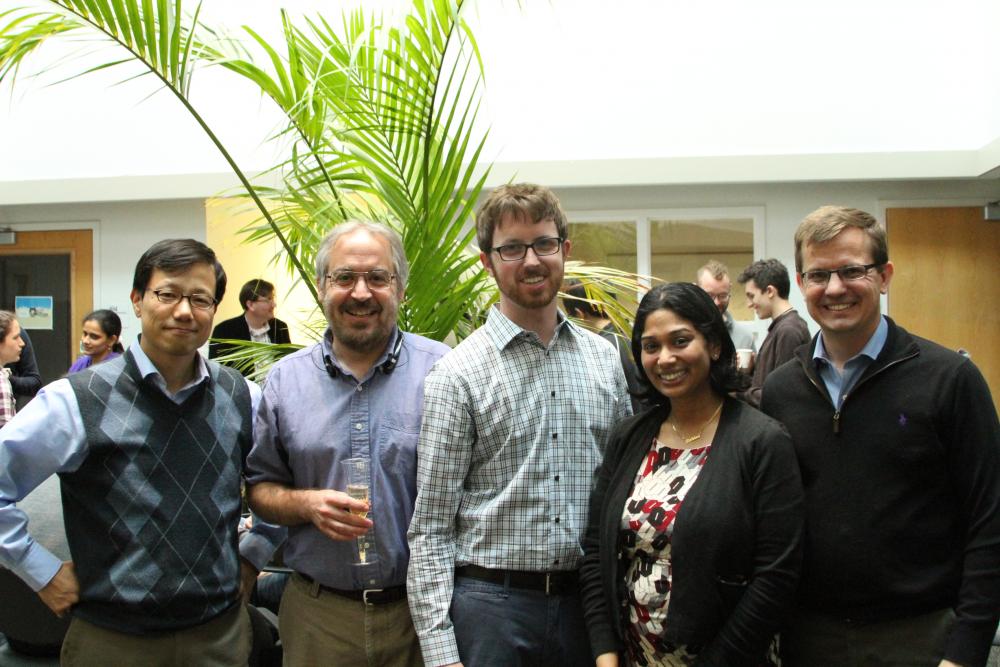Inaugural Computational Biology Ph.D. Graduate Max Leiserson
Congratulations to Dr. Max Leiserson, Ph.D. on successfully defending his thesis and becoming the first Ph.D. to complete the program in Computational Biology at the Center. We are proud to have you as our first awarded Doctorate and wish you all the best in your future endeavors.
Thesis
Methods for Identifying Combinations of Driver Mutations in Cancer
A major challenge in analyzing the mutations in cancer is distinguishing the handful of driver mutations that cause cancer from the multitude of passenger mutations that play no role in cancer. In part to address this challenge, consortia such as The Cancer Genome Atlas (TCGA) have generated massive catalogues of somatic mutations in thousands of tumors. The new wealth of mutation data has shown that identifying driver mutations is a difficult computational problem. Many driver mutations are rare, even in these large tumor cohorts, because different combinations of mutations cause cancer in different patients. Part of the reason for this phenomenon is that driver mutations target key genetic pathways that perform vital cellular functions, and each pathway can be perturbed in numerous ways.
To begin to address this challenge, we have developed computational methods to search for combinations of driver mutations targeting pathways. We first present two methods for identifying combinations of mutations that are mutually exclusive in a cohort of tumors, a pattern commonly observed in known pathways. We then present an algorithm to identify significant clusters of mutations in an interaction network. We show that these algorithms outperform previous methods on simulated and real mutation data from TCGA, and identify potentially novel combinations of mutations. We also describe the Mutation Annotation and Genome Interpretation (MAGI) web application, which displays interactive visualizations as well as crowd-sourced and text-mined mutation annotations in order to help prioritize likely driver mutations. These methods contribute towards overcoming the computational challenge of identifying driver mutations in cancer.
